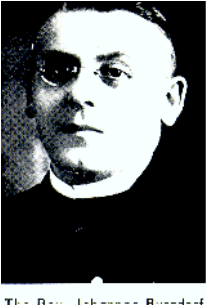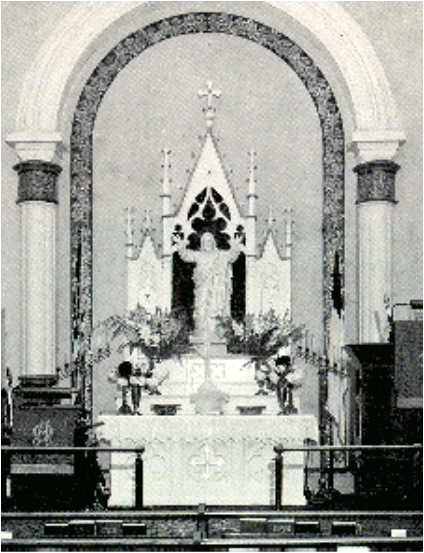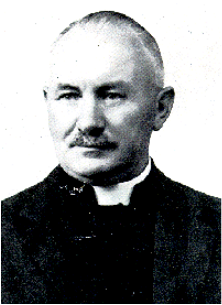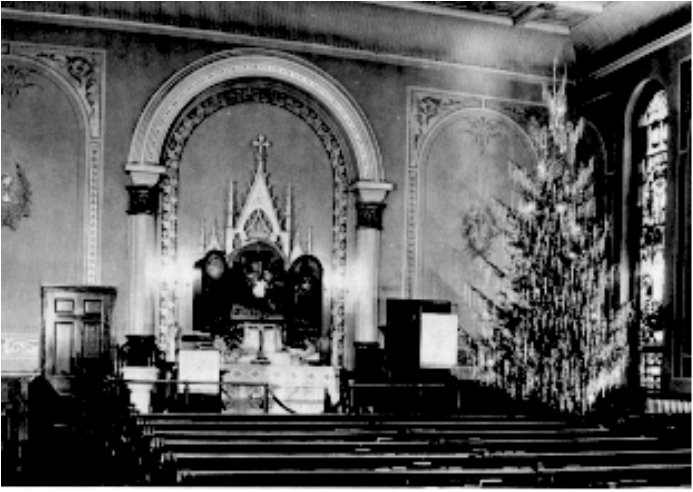The Pastor Herrmann Era: 1923-1954

Pastor von Bosse was succeeded by Pastor Johannes Burgdorf, who introduced two new things to Immanuel which were to prove to be of lasting importance: the weekly offering envelope system and the publication of a monthly church paper, which was called Der Sendbote; the articles were originally all in German. This paper continued to be published, for a time on slick paper, and by the 1940's it had become bilingual. The surviving issues are a source of valuable information about life at Immanuel at that time. Pastor Burgdorf became seriously ill the spring of 1923 and died in Lankenau Hospital on May 30 of that year.
On August 6, 1923 the congregation called Pastor William F. Herrmann as his successor. He was to serve Immanuel longer than any other pastor in its history, and also became quite well known in the German Conference of the Ministerium of Pennsylvania and the United Lutheran Church in America in general. Born in Liepe, Angermuende, Germany, he had received his theological education both in Europe and in the United States. In time he earned an S.T.M. degree at the Lutheran Theological Seminary at Philadelphia and was granted an honorary Doctor of Divinity (D.D.) by Midland College in Fremont, Nebraska.
One of the highlights of Dr. Herrmann's pastorate was the celebration in 1942 of Immanuel's 150th Anniversary. An attractive booklet and a color motion picture give us a good idea of what life was like in the congregation on the eve of World War II.
The war proved difficult for Immanuel, for it still retained much of its German character and many of the sons and daughters of German immigrants were called upon or volunteered to serve their country in a struggle which in large part was against the homeland of their parents. However, there seems to have been little of the hysteria directed against things German which had made the First World War period at Immanuel so difficult.
One of the highlights of Dr. Herrmann's pastorate was the celebration in 1942 of Immanuel's 150th Anniversary. An attractive booklet and a color motion picture give us a good idea of what life was like in the congregation on the eve of World War II.
The war proved difficult for Immanuel, for it still retained much of its German character and many of the sons and daughters of German immigrants were called upon or volunteered to serve their country in a struggle which in large part was against the homeland of their parents. However, there seems to have been little of the hysteria directed against things German which had made the First World War period at Immanuel so difficult.
|
It was Pastor Herrmann who introduced the use of the English language at Immanuel, a necessary step to insure the congregation's future. In this way it was possible to hold onto Immanuel's young people, who often had only a passive knowledge of German and preferred to worship in the English language. Thus, under Pastor Herrmann's guidance the church took on the bilingual character which it has retained to the present time.
|
Pastor Herrmann was loved and admired by everyone. His advice both spiritual and secular was often sought by members, and in time he came to be regarded by the congregation as a father. During the war he made a special effort to keep in touch with servicemen and women, and let them know that the congregation's prayers were with them.
After the cessation of hostilities and as the forties came to and end, a large number of Immanuel's members migrated into the far northeast of Philadelphia or the suburbs, but a suprising number of them maintained their ties to the congregation. However, it became more and more obvious that the center of gravity of the German-American population of Northeast Philadelphia was shifting away from the Frankford area.
On September 14, 1954 Pastor Herrmann departed this life at the age of 66, having served the congregation for 31 years. Members and non-members alike mourned his passing and felt they had lost and old friend. Many a son or daughter of Immanuel remember him as the pastor who had baptized, confirmed, or married them (or all three), and still speak with highest regard of his ministry.
After the cessation of hostilities and as the forties came to and end, a large number of Immanuel's members migrated into the far northeast of Philadelphia or the suburbs, but a suprising number of them maintained their ties to the congregation. However, it became more and more obvious that the center of gravity of the German-American population of Northeast Philadelphia was shifting away from the Frankford area.
On September 14, 1954 Pastor Herrmann departed this life at the age of 66, having served the congregation for 31 years. Members and non-members alike mourned his passing and felt they had lost and old friend. Many a son or daughter of Immanuel remember him as the pastor who had baptized, confirmed, or married them (or all three), and still speak with highest regard of his ministry.
Immanuel at Christmas circa 1940


